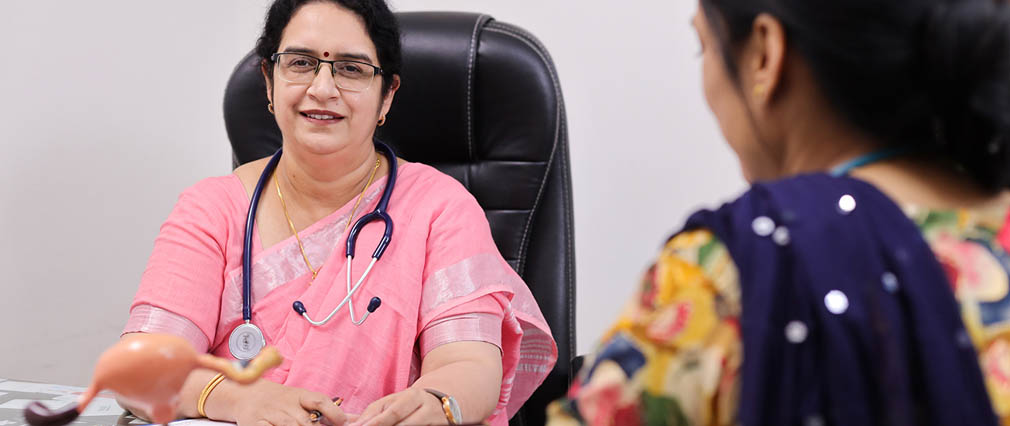
Decreased Liquor (Oligohydramnios): Diagnosis and Management at Meerut Gynaecologist
Oligohydramnios is a condition characterized by a lower-than-normal amount of amniotic fluid surrounding the baby in the uterus. Amniotic fluid plays a vital role in the development and protection of the baby during pregnancy. It cushions the baby, facilitates movement, and supports lung and digestive system development. Decreased amniotic fluid levels can lead to complications, particularly if the condition occurs early or late in pregnancy.
Oligohydramnios may result from various maternal, placental, or fetal issues, and its severity determines the required interventions. At Meerut Gynaecologist, Dr. Deepti Dogra offers expert care and advanced monitoring to manage oligohydramnios effectively, ensuring the best outcomes for mother and baby.
Causes of Oligohydramnios
Maternal Factors:
- Dehydration or poor nutrition.
- High blood pressure, preeclampsia, or chronic kidney disease.
- Diabetes affecting placental function.
Placental Factors:
- Placental insufficiency leading to restricted blood flow and nutrient delivery.
Fetal Factors:
- Birth defects involving the kidneys or urinary tract, which reduce fetal urine production.
- Post-term pregnancies where amniotic fluid levels naturally decrease.
Other Factors:
- Ruptured membranes causing leakage of amniotic fluid.
- Certain medications affecting fluid levels.
Symptoms of Oligohydramnios
- Reduced fetal movements.
- Smaller-than-expected fundal height (measurement of the uterus size).
- Leakage of fluid if membranes have ruptured prematurely.
Diagnosis and Management by Dr. Deepti Dogra at Meerut Gynaecologist
Dr. Deepti Dogra employs advanced diagnostic techniques to identify and manage oligohydramnios effectively. Diagnostic methods include:
- Ultrasound Examination: Measuring the amniotic fluid index (AFI) or the deepest vertical pocket of fluid to assess levels.
- Doppler Studies: To evaluate blood flow between the placenta and baby.
- Non-Stress Tests (NST): Monitoring fetal heart rate and movement to assess well-being.
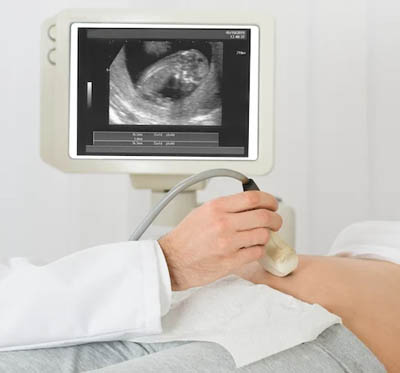
Treatment options offered by Dr. Dogra include:
- Maternal Hydration: Encouraging increased fluid intake, both orally and intravenously, to boost amniotic fluid levels.
- Close Monitoring: Regular ultrasounds and NSTs to monitor fluid levels and fetal health.
- Amnioinfusion: In certain cases, saline or lactated Ringer’s solution is introduced into the amniotic sac during labor to prevent complications.
- Early Delivery: If oligohydramnios poses a risk to the baby, Dr. Dogra may recommend timely induction of labor or a cesarean section.
Why Meerut Gynaecologist for Oligohydramnios Management?
Dr. Deepti Dogra’s expertise in obstetric care ensures meticulous monitoring and timely interventions for oligohydramnios. At Meerut Gynaecologist, every patient benefits from personalized care and a commitment to achieving the best outcomes for both mother and baby.
Protect Your Baby’s Development!
If you’re experiencing symptoms or are at risk of oligohydramnios, visit Dr. Deepti Dogra at Meerut Gynaecologist for expert guidance and care. Schedule your consultation today and ensure a healthy pregnancy for you and your baby!
FAQs for Oligohydramnios at Meerut Gynaecologist
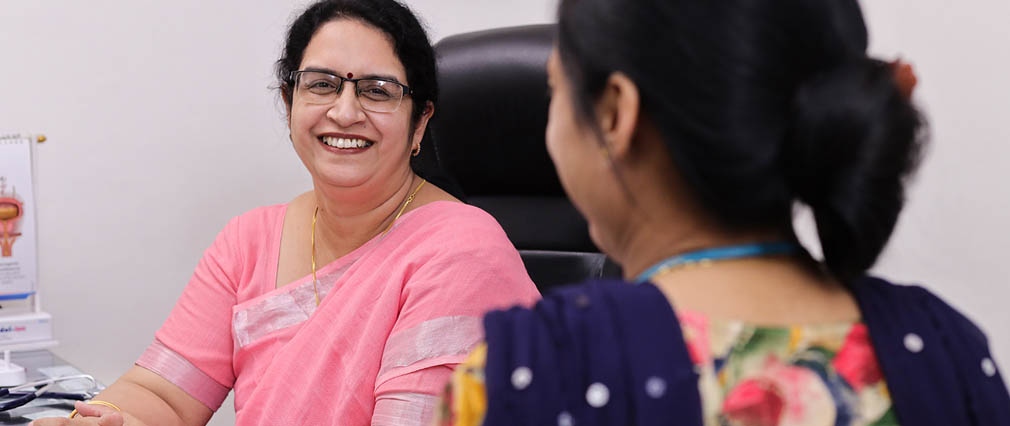
Increased Liquor (Polyhydramnios): Diagnosis and Management at Meerut Gynaecologist
Polyhydramnios is a condition where there is an excessive amount of amniotic fluid surrounding the baby in the uterus. Amniotic fluid is essential for the baby’s development, but when present in excessive quantities, it can lead to complications for both the mother and baby. Polyhydramnios often develops gradually during the second or third trimester, though it can occur earlier in some cases.
Mild cases of polyhydramnios may not cause significant issues, but severe cases can increase the risk of preterm labor, placental abruption, or delivery complications. At Meerut Gynaecologist, Dr. Deepti Dogra provides expert care for diagnosing and managing polyhydramnios, ensuring the safety and well-being of both mother and baby.
Causes of Polyhydramnios
• Maternal Factors:
- Gestational diabetes leading to excessive fetal urine production.
- Multiple pregnancies (twins or triplets).
• Placental Factors:
- Placental insufficiency or abnormal function.
• Fetal Factors:
- Congenital anomalies such as gastrointestinal or central nervous system malformations that hinder the baby’s ability to swallow amniotic fluid.
- Fetal anemia or infections.
• Idiopathic:
- In many cases, no specific cause can be identified.
Symptoms of Polyhydramnios
- Rapidly growing abdomen or a feeling of tightness.
- Difficulty breathing or shortness of breath due to pressure on the diaphragm.
- Increased swelling in the legs or lower body.
- Reduced fetal movements in severe cases.
Diagnosis and Management by Dr. Deepti Dogra at Meerut Gynaecologist
Dr. Deepti Dogra employs advanced techniques to diagnose and treat polyhydramnios effectively. Diagnostic methods include:
- Ultrasound: To measure the amniotic fluid index (AFI) and assess the severity of the condition.
- Doppler Studies: To evaluate fetal blood flow and detect any associated complications.
- Blood Tests: For maternal glucose levels to rule out gestational diabetes.
- Fetal Monitoring: To check the baby’s well-being and detect any anomalies.
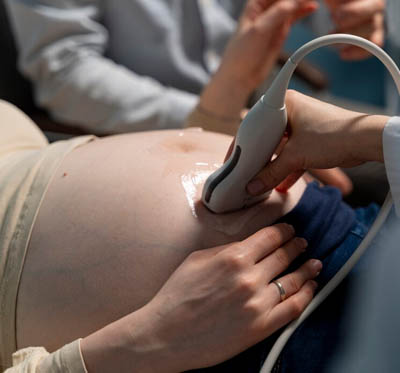
Treatment options include:
- Managing Underlying Causes: If gestational diabetes is present, controlling blood sugar levels through diet, exercise, or medication.
- Monitoring: Regular ultrasounds and fetal monitoring to track amniotic fluid levels and fetal health.
- Medications: In some cases, medications may be used to reduce fluid production or manage preterm labor risks.
- Amnioreduction: For severe cases, excess amniotic fluid may be removed using a procedure called amniocentesis to relieve symptoms and reduce risks.
- Delivery Planning: Early or cesarean delivery may be recommended if polyhydramnios poses a risk to the mother or baby.
Why Meerut Gynaecologist for Polyhydramnios Management?
With her extensive experience and advanced diagnostic tools, Dr. Deepti Dogra ensures personalized care and timely interventions for managing polyhydramnios. At Meerut Gynaecologist, patient safety and comfort are the top priorities.
Ensure a Safe and Healthy Pregnancy!
If you’re experiencing symptoms or are diagnosed with polyhydramnios, visit Dr. Deepti Dogra at Meerut Gynaecologist for expert care. Book your consultation today and safeguard your health and your baby’s development!
FAQs for Polyhydramnios at Meerut Gynaecologist
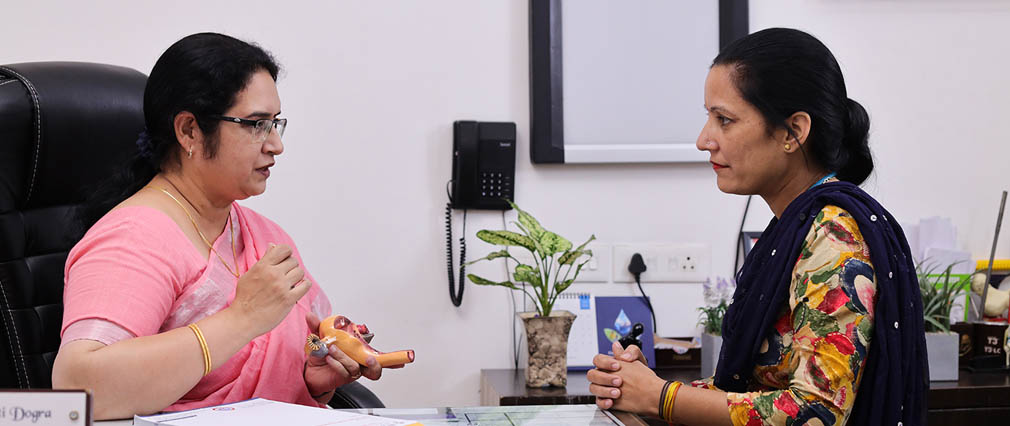
APLA Syndrome: Diagnosis and Management at Meerut Gynaecologist
Antiphospholipid Antibody Syndrome (APLA), also known as Antiphospholipid Syndrome, is an autoimmune disorder that increases the risk of blood clots in veins and arteries. In pregnancy, APLA syndrome is a significant concern as it can lead to complications such as recurrent miscarriages, stillbirth, preeclampsia, and intrauterine growth restriction (IUGR). The condition occurs when the immune system mistakenly produces antibodies that attack phospholipids, critical components of cell membranes.
APLA syndrome requires careful management during pregnancy to ensure the health and safety of both mother and baby. At Meerut Gynaecologist, Dr. Deepti Dogra provides expert care in diagnosing and managing APLA syndrome, helping women achieve successful pregnancies despite this challenging condition.
Causes and Risk Factors for APLA Syndrome
- Autoimmune Factors: The body’s immune system produces antiphospholipid antibodies, which increase the risk of clot formation.
- Genetic Predisposition: A family history of autoimmune disorders may raise the risk.
- Secondary APLA Syndrome: May occur in conjunction with other autoimmune diseases like lupus.
Symptoms of APLA Syndrome
- Recurrent miscarriages or pregnancy losses.
- Blood clots in the legs (deep vein thrombosis) or lungs (pulmonary embolism).
- Unexplained stroke or transient ischemic attacks in young individuals.
- Preterm delivery or complications related to placental insufficiency.
Diagnosis and Management by Dr. Deepti Dogra at Meerut Gynaecologist
Dr. Deepti Dogra offers comprehensive evaluation and care for APLA syndrome. Diagnostic steps include:
- Blood Tests: To detect antiphospholipid antibodies (lupus anticoagulant, anticardiolipin antibodies, and beta-2 glycoprotein I antibodies).
- Ultrasound and Doppler Studies: To assess placental blood flow and detect complications such as IUGR or preeclampsia.
- History and Risk Assessment: Detailed evaluation of prior pregnancy losses or clotting events.
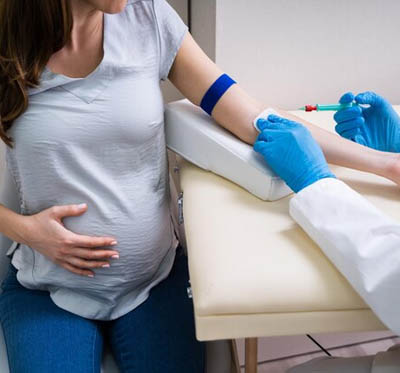
Treatment options include:
1. Medications:
- Blood Thinners: Low-dose aspirin or heparin injections to prevent clot formation and improve placental blood flow.
- Steroids or Immunosuppressants: In certain cases, to manage associated autoimmune conditions.
2. Lifestyle Adjustments:
- Encouraging healthy habits such as hydration, avoiding prolonged immobility, and following a balanced diet.
3. Close Monitoring:
- Frequent ultrasounds and Doppler studies to monitor fetal growth and detect complications early.
- Regular blood pressure checks to manage the risk of preeclampsia.
4. Delivery Planning:
- Early delivery may be recommended in cases of severe complications to ensure maternal and fetal safety.
Why Meerut Gynaecologist for APLA Syndrome Management?
Dr. Deepti Dogra combines her expertise in obstetrics with advanced care protocols to help women with APLA syndrome achieve healthy pregnancies. At Meerut Gynaecologist, patients receive individualized care tailored to their specific needs, ensuring close monitoring and timely interventions.
Turn Challenges into Triumphs!
If you’ve been diagnosed with APLA syndrome or have experienced recurrent pregnancy losses, consult Dr. Deepti Dogra at Meerut Gynaecologist for expert guidance and compassionate care. Schedule your appointment today and take the first step toward a healthy and successful pregnancy!
FAQs for APLA syndrome at Meerut Gynaecologist
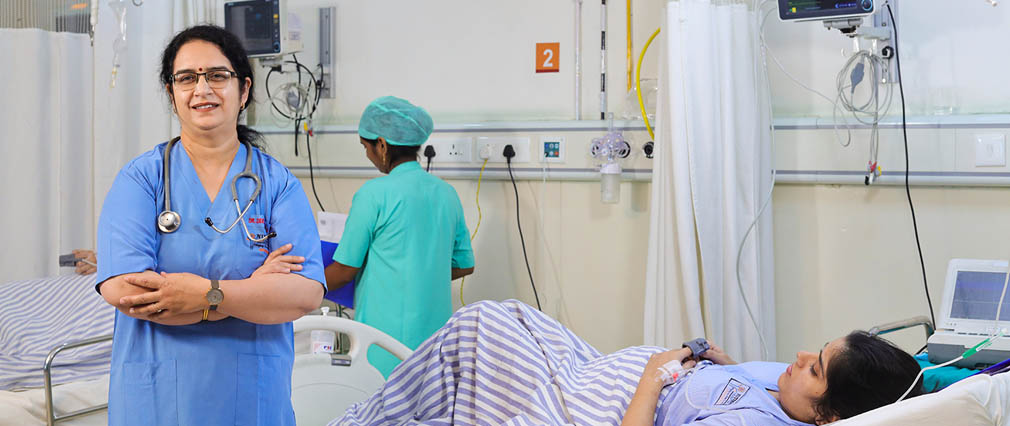
Previous Bad Obstetric History: Expert Care at Meerut Gynaecologist
Previous Bad Obstetric History (BOH) refers to a situation where a woman has experienced complications in one or more prior pregnancies, such as recurrent miscarriages, intrauterine fetal deaths (IUFD), or other pregnancy losses. These challenges can create emotional distress and anxiety for couples planning another pregnancy. However, with proper diagnosis, expert care, and monitoring, women with BOH can achieve healthy pregnancies and successful deliveries.
At Meerut Gynaecologist, Dr. Deepti Dogra offers compassionate and specialized care for women with a history of pregnancy losses. Her approach focuses on identifying the underlying causes, providing tailored treatments, and offering ongoing support to help families overcome past challenges and embrace a brighter future.
Common Causes of Bad Obstetric History
1. Recurrent Miscarriages:
- Hormonal imbalances (e.g., progesterone deficiency).
- Structural abnormalities in the uterus (e.g., uterine septum or fibroids).
- Chromosomal abnormalities in the fetus.
2. Intrauterine Fetal Deaths (IUFD):
- Placental insufficiency leading to poor oxygen and nutrient supply to the baby.
- Uncontrolled maternal conditions such as hypertension or diabetes.
- Infections like rubella, cytomegalovirus, or toxoplasmosis.
3. Other Factors:
- Autoimmune conditions like APLA syndrome.
- Blood clotting disorders.
- Lifestyle factors such as smoking, alcohol consumption, or malnutrition.
Symptoms and Indicators of BOH
- History of two or more pregnancy losses.
- Preterm births or complications in prior pregnancies.
- Difficulty in conceiving again after previous losses.
Diagnosis and Treatment by Dr. Deepti Dogra at Meerut Gynaecologist
Dr. Deepti Dogra provides a comprehensive evaluation to uncover the root causes of BOH and develop a personalized treatment plan. Diagnostic methods include:
- Detailed Medical and Pregnancy History: To identify patterns and potential risk factors.
- Blood Tests: To check for infections, clotting disorders, or autoimmune conditions like APLA syndrome.
- Ultrasound and Hysteroscopy: To detect uterine abnormalities or placental issues.
- Genetic Testing: For both parents and fetal tissues, if applicable, to identify chromosomal abnormalities.

Treatment options include:
1. Pre-Conception Counseling:
- Nutritional guidance and folic acid supplementation to prepare for a healthy pregnancy.
- Management of underlying health conditions such as diabetes or hypertension.
2. Medical Management:
- Hormonal support (e.g., progesterone supplements) to sustain pregnancy.
- Blood thinners (e.g., aspirin or heparin) for clotting disorders or APLA syndrome.
3. Close Monitoring During Pregnancy:
- Regular ultrasounds and Doppler studies to monitor fetal growth and placental health.
- Frequent antenatal visits to ensure early detection and management of complications.
4. Safe Delivery Planning:
- Dr. Dogra ensures optimal delivery methods, whether natural or cesarean, to minimize risks for both mother and baby.
Why Meerut Gynaecologist for BOH Management?
Dr. Deepti Dogra’s extensive experience in high-risk obstetrics makes her the ideal choice for managing BOH cases. At Meerut Gynaecologist, patients benefit from a supportive and empathetic environment, advanced diagnostics, and evidence-based treatments tailored to individual needs.
Transform Your Journey to Motherhood!
If you have experienced pregnancy losses or complications in the past, trust Dr. Deepti Dogra at Meerut Gynaecologist to provide expert care and guidance. Schedule your consultation today and take a confident step toward a safe and successful pregnancy!


